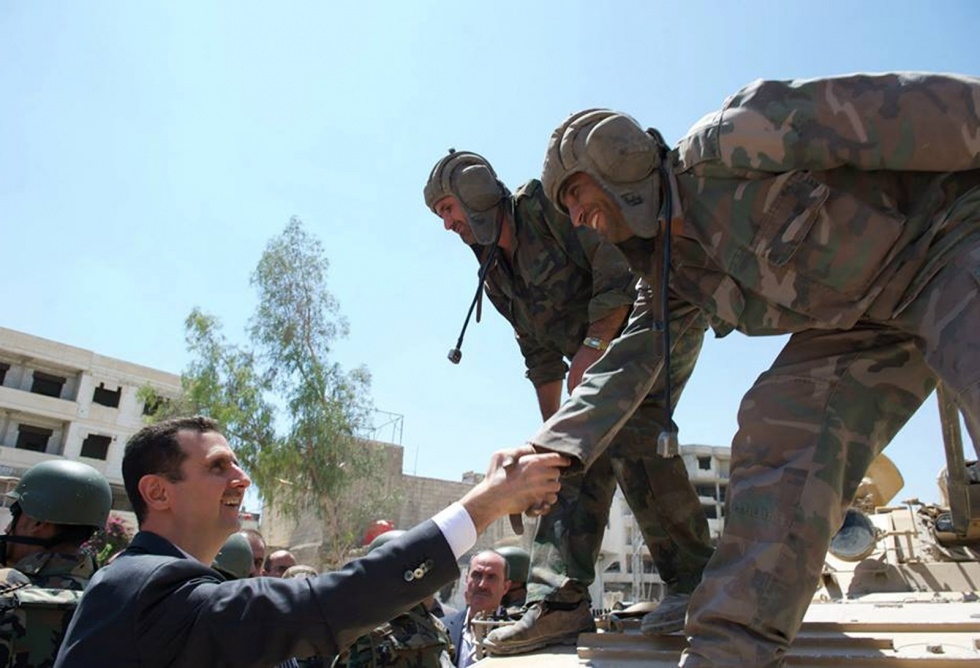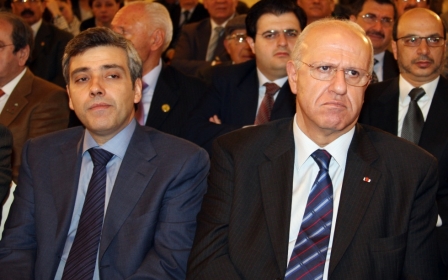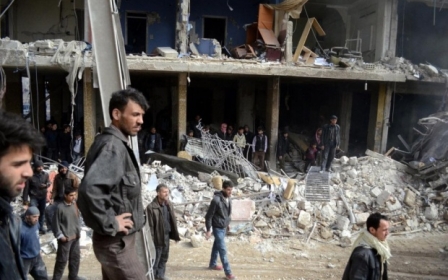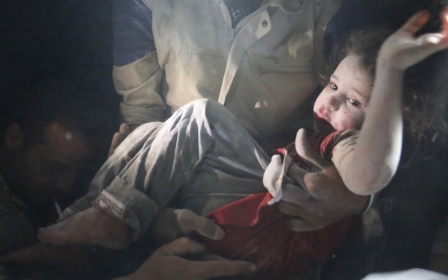Assad: French-Syrian intelligence services 'held meetings'

Syrian President Bashar al-Assad has claimed that French intelligence officials have been in contact with their counterparts in Syria but that his services had refused to cooperate.
In a wide-ranging French television interview this week, Assad said: "We held meetings with some officials from the French intelligence services, but there was no cooperation or exchange of information."
He added that France had sent representatives to Syria, but said no Syrian officials had travelled to France, accusing Paris of supporting "terrorists" opposed to his rule.
During the interview broadcast by France 2, Assad said he was open to talks if the West "convinces us they are not supporting the terrorists."
Last month, US Secretary of State John Kerry said he would talk to Assad to help end a conflict that has seen more than 220,000 Syrians killed. France’s President Francois Hollande has ruled out any official talks with Damascus.
"How can we establish dialogue with a country that supports terrorism in our country?" Assad asked in an apparent reference to France, which has said it has supplied weapons to Syrian rebel groups.
Assad, who succeeded his father in 2000, said that France had "become a kind of satellite for American foreign policy in the region. It is not independent, it has no weight and no credibility."
'Documents prove nothing'
Turning to claims that his forces have used barrel bombs and chemical weapons, namely chlorine gas, against rebel-controlled areas, Assad was shown photographs of Syrian soldiers dropping improvised bombs on populated areas from helicopters.
"Documents prove nothing," Assad replied. "What are barrel bombs?" He also denied his forces had used chlorine gas. “We don't need to," he told France 2 anchor David Pujadas.
According to Human Rights Watch, pro-Assad forces have used barrel bombs indiscriminately against rebel-held towns.
Last year, the UN Security Council adopted a resolution calling for the end to barrel bombing by Assad’s forces.
A report last year by the Organization for the Prohibition of Chemical Weapons said a toxic chemical, most likely chlorine, was used in attacks on villages in northern Syria.
Denying the presence of Iranian troops in his country, Assad said: "We invited Hezbollah, but not the Iranians. There are no Iranian troops in Syria and they have not sent any troops."
Iran, Assad's main regional ally, has acknowledged sending military advisers to Syria but has denied having combat troops on the ground.
Lebanon’s Hezbollah, which is backed by Iran, has sent fighters to bolster Assad’s forces.
IS created 'under the supervision of the Americans'
In the interivew, Assad also accused the US of overseeing the creation of the Islamic State (IS) group.
"The IS was created in Iraq in 2006 under the supervision of the Americans. The IS came from Iraq to Syria because chaos is contagious," he said.
"Is it democratic to send weapons to terrorists and to support them? So I have the right to support the terrorists who attacked Charlie Hebdo for example?"
Assad was scathing about efforts of the US-led coalition fighting IS, saying the grouping was "not serious".
"If you compare the number of air strikes carried out by the coalition composed of 60 states compared to those by our small state you will notice we sometimes strike ten times more than the coalition in one day. Is that serious?
"It took them four months to free what their media calls the town of Kobane on the Turkish border. How can you say this coalition is effective? They are not serious and that is why they are not helping anyone in the region."
More than 220,000 people have been killed in Syria since the conflict began with anti-government protests in March 2011 that spiralled into a war after a government crackdown.
Repeated diplomatic attempts to end the fighting have failed.
New MEE newsletter: Jerusalem Dispatch
Sign up to get the latest insights and analysis on Israel-Palestine, alongside Turkey Unpacked and other MEE newsletters
Middle East Eye delivers independent and unrivalled coverage and analysis of the Middle East, North Africa and beyond. To learn more about republishing this content and the associated fees, please fill out this form. More about MEE can be found here.




